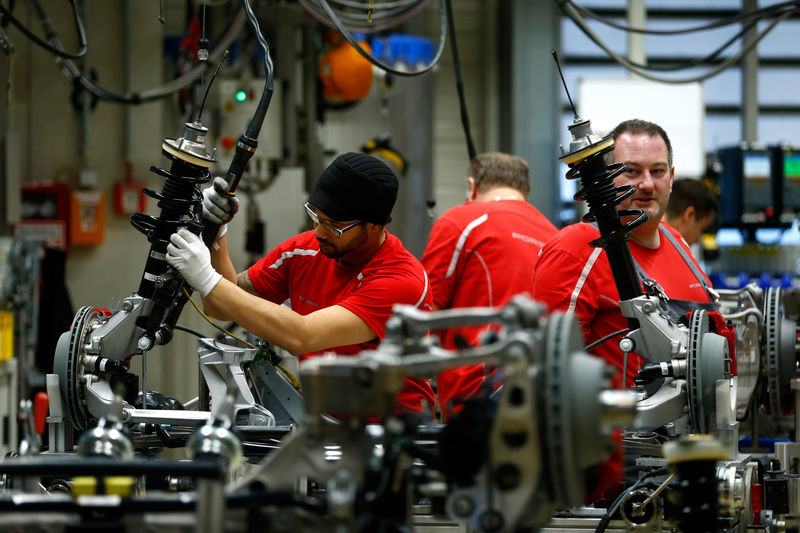BERLIN (Reuters) - German industrial orders fell at their sharpest rate in more than two years in February as they were hit by a slump in foreign demand, compounding worries that Europe's largest economy had a weak start to the year.
Contracts for German goods slumped by 4.2 percent, data from the Economy Ministry showed on Thursday. That compared to a fall of 2.1 percent in January, revised from a drop of 2.6 percent.
The unexpected fall was the sharpest since January 2017 and confounded forecasts for a 0.3 percent increase.
"Awful new order data suggests that German industry is still suffering from Brexit woes and global uncertainties," said ING economist Carsten Brzeski.
Concern about the weakness of the manufacturing sector is clouding the outlook for Germany's economy, which faces headwinds from a slowing world economy, international trade disputes and the threat of Britain leaving the European Union without a deal.
"In the coming months, a subdued industrial economy is to be expected, especially because of a lack of foreign demand," said the ministry in a statement.
Data showed that foreign orders were down 6.0 percent in February, with a 7.9 percent drop from non-euro zone countries and a 2.9 percent decrease within the euro zone. Domestic contracts slipped by 1.6 percent.
Germany's leading economic institutes have cut their 2019 growth forecast for Germany to 0.8 percent from a previous estimate of 1.9 percent, two sources familiar with the report to be presented on Thursday told Reuters.
